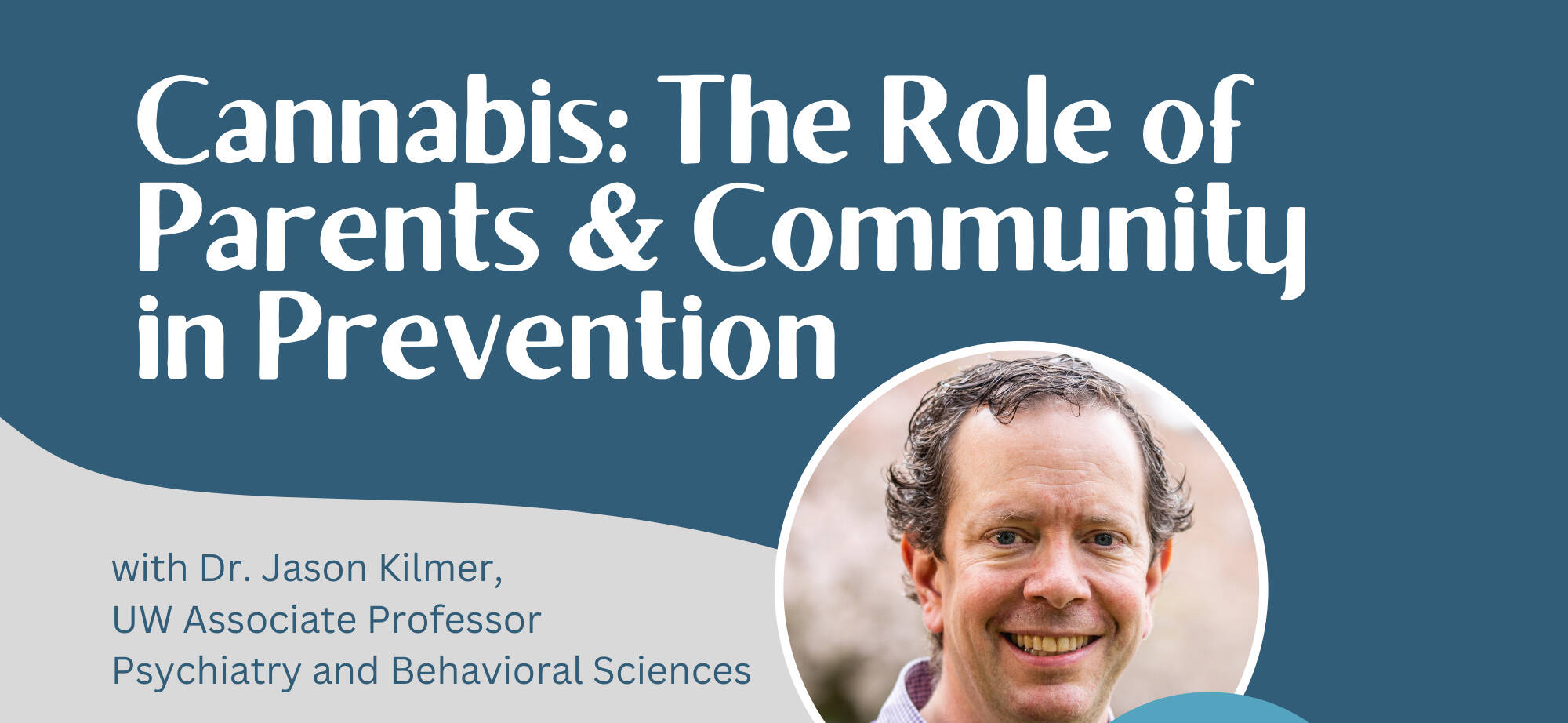Cannabis is more potent than it’s ever been and that’s cause for immense concern along with usage, said Dr. Jason Kilmer.
The University of Washington associate professor of psychiatry and behavioral sciences noted that the THC levels in today’s products reach the 20-30% marks as opposed to single-digit percentages of years past.
Speaking to Mercer Island parents during a virtual presentation, titled “Cannabis: The Role of Parents & Community in Prevention,” on March 30, Kilmer delved into potency, effects on attention and memory, addiction and more. The event was offered through the city of Mercer Island’s Youth and Family Services (YFS) Healthy Youth Initiative with funding from the Substance Abuse and Mental Health Services Administration.
Armed with copious pages of science-based research, Kilmer said that cannabis affects users’ attention, concentration, memory and motivation while hampering students’ academic performances. He said that across the age board, most people aren’t using cannabis and halting the usage that is occurring will pay dividends on improving one’s cognitive abilities.
According to the College Parents Matter site, in part, family members shouldn’t be afraid to start a conversation about cannabis-use concerns, communicate on a regular basis and they should recognize the power of their influence.
On the elementary, middle and high school front, a 2021 Healthy Youth Survey noted that in King County, cannabis/marijuana use over the past 30 days was as follows: sixth-graders, 1%; eighth-graders, 2%; sophomores, 7%; and seniors, 18%.
When touching upon the high-potency products, Kilmer said: “I hear people say, ‘It’s just weed.’ Seriously, it stopped being ‘just weed’ years ago.” He added that, according to his research colleagues across 11 cities in Europe and Brazil, people who partake in cannabis containing more than 10% THC on a daily basis are five to six times more likely to develop a psychotic disorder than those people who don’t use.
Kilmer said that parents, caregivers and support-services and community members play critical roles in implementing prevention plans and positively influencing youth and young adults.
“Certainly, after a largely virtual year during the pandemic, a lot of people said we want to be the biggest champions ever for student success, for academic outcomes,” Kilmer said. “Honestly, I’ve got to believe we can all get behind that. And, if that’s true, we also have to be champions for substance-use prevention.”
At the beginning, middle and conclusion of his presentation, Kilmer praised the Mercer Island community and YFS for supporting their students in the prevention realm.
Added Michelle Ritter, coordinator of the Healthy Youth Initiative: “Parents are the No. 1 influence, and we hope that’s why you’re here this evening is because you understand the important role that you play in helping your children make those good choices.”
For more information, visit https://www.mercerisland.gov/yfs


